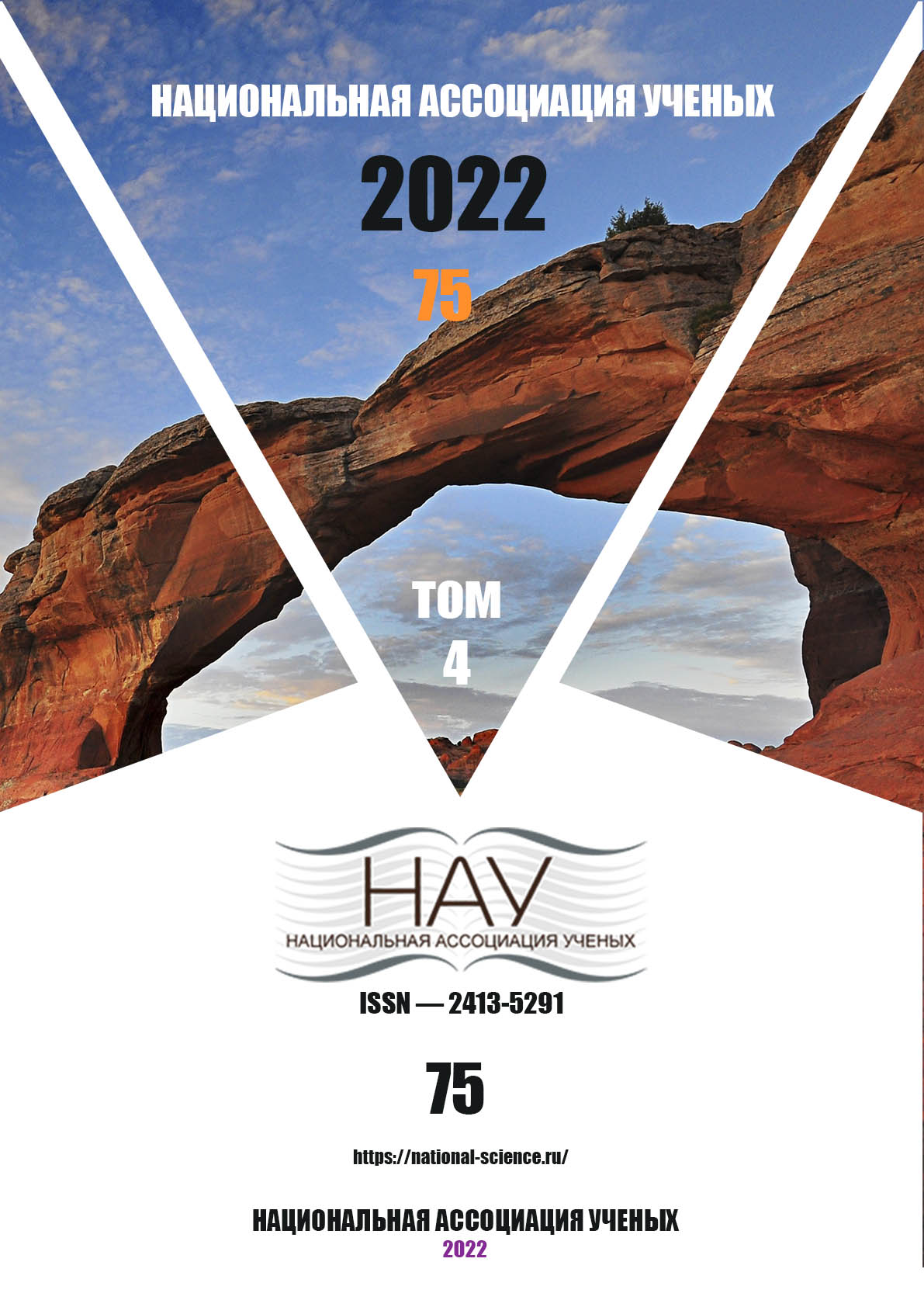THE TABLE AND ITS ROLE IN THE DEVELOPMENT OF PUBLIC SPACES
DOI:
https://doi.org/10.31618/nas.2413-5291.2022.4.75.566Keywords:
space, public space, urban environment, furniture, table.Abstract
The article is devoted to the concept of public space and its functionality during the study of coffee shops in Novosibirsk. The necessity for public space per person is an urgent topic, since every person somehow finds himself inside this space and assumes a special role in society. Semiotic, theoretical and empirical research methods were used in the study of the topic. Important aspects in the formation of modern urban public spaces are their functionality and complexity, which determines the components of this environment. Public spaces fulfill the task of broadcasting urban culture from generation to generation and have the ability to adapt to the rapidly changing needs of residents. An analysis of the gender, age and psychological characteristics of coffee shop visitors makes it possible to understand the reasons for visiting coffee shops, as well as the relevance of this public space in general. The article analyzes the role of tables in the social practices of society and the age composition of visitors to the cafe of the city. As a result of the study, it was found that furniture inside public spaces affects not only the aesthetic component, but also the change in social relationships between people.
References
Bawbekov R.I. The history of the cafe, their individuality and the peculiarity of the interior [electronic resource] // Scientific electronic library "Cyberleninka". 2016. URL: https://cyberleninka.ru/article/n/istoriyavozniknoveniya-kafe-ih-individualnost-i-osobennostinteriera (accessed 2016). [in Russian]
Batalina T.S. Analysis of the features of the formation of public space // Business and design review. 2017. Vol. 1. No. 1(5). 15 p. [in Russian]
Baudrillard J. Architecture: truth or radicalism? // trans. from German A. Vorobyov, M. Vilkovsky // Sociological research, 2011. No. 5. pp. 114-122. [in Russian]
Baudrillard J. The system of things. M.: RUDOMINO. 1999. 224 p. [in Russian]
Bourdieu P. Sociology of social space // Trans. from French; ed. of translation by N. A. Shmatko. M.: Institute of Experimental Sociology; St. Petersburg: Aleteya, 2007. 288 p. [in Russian]
Dobritsyna I.A. Public space of the city and design // Urban environment. Design. Architecture: Collection of scientific works. M.:1999. T1. pp. 55-110. [in Russian]
Zukin Sh. Culture of cities. M.: New Literary Review. 2018. 424 p. [in Russian]
Ikonnikov A.V. Formation of the urban environment. M.: Znanie. 1973. 65 p
Ilinykh S.A., Tabarkov A.V. Urban space: specificity of management [electronic resource] // Scientific electronic library "Cyberleninka". 2015. URL: https://cyberleninka.ru/article/n/gorodskoeprostranstvo-spetsifika-upravleniya (access date 2015). [in Russian]
Lynch K. The image of the city // Translated from English by V.L. Glazychev; Compiled by A.V. Ikonnikov; Edited by A.V. Ikonnikov. M.: Stroyizdat. 1982. 328 p. [in Russian]
Lynch K. The perfect form in urban planning // translated from English by V.L. Glazychev, edited by A.V. Ikonnikov. M.: Stroyzdat. 1986. 264 p. [in Russian]
Nazalova R.I. Types of restaurants [electronic resource] // All about the restaurant business. 2011. URL: http://grandmenu.org/tipy-restoranov.html (accessed 2011). [in Russian]
Oldenburg R. Third place: Cafes, coffee shops, bookstores, bars, beauty salons and other places of "hangouts". M.: New Literary Review. 2018. 456 p.
Piz A. Body language. Nizhny Novgorod: Publishing house "Ai Q". 1992. 272 p. [in Russian]
Sobolev N. N. Styles in furniture // Publishing House of All-Union architecture, M. 1939. [in Russian]
Chaplya T. V. The space of architecture: from the space of places to the space of relations// Bulletin of Slavic Cultures, 2018. No. 3. pp. 51-63 [in Russian] 17. Redfield R. The Folk Society // American Journal of Sociology // Perevod s anglijskogo V.G. Nikolaeva // LIChNOST''. KUL''TURA. OBShhESTVO. 2009. №1. S. 46–47.
Warner W.L. Yankee City. New Haven. // Perevod s anglijskogo O.Luksha. Press. 1963.
Downloads
Published
Issue
Section
License

This work is licensed under a Creative Commons Attribution-NoDerivatives 4.0 International License.
CC BY-ND
A work licensed in this way allows the following:
1. The freedom to use and perform the work: The licensee must be allowed to make any use, private or public, of the work.
2. The freedom to study the work and apply the information: The licensee must be allowed to examine the work and to use the knowledge gained from the work in any way. The license may not, for example, restrict "reverse engineering."
2. The freedom to redistribute copies: Copies may be sold, swapped or given away for free, in the same form as the original.





